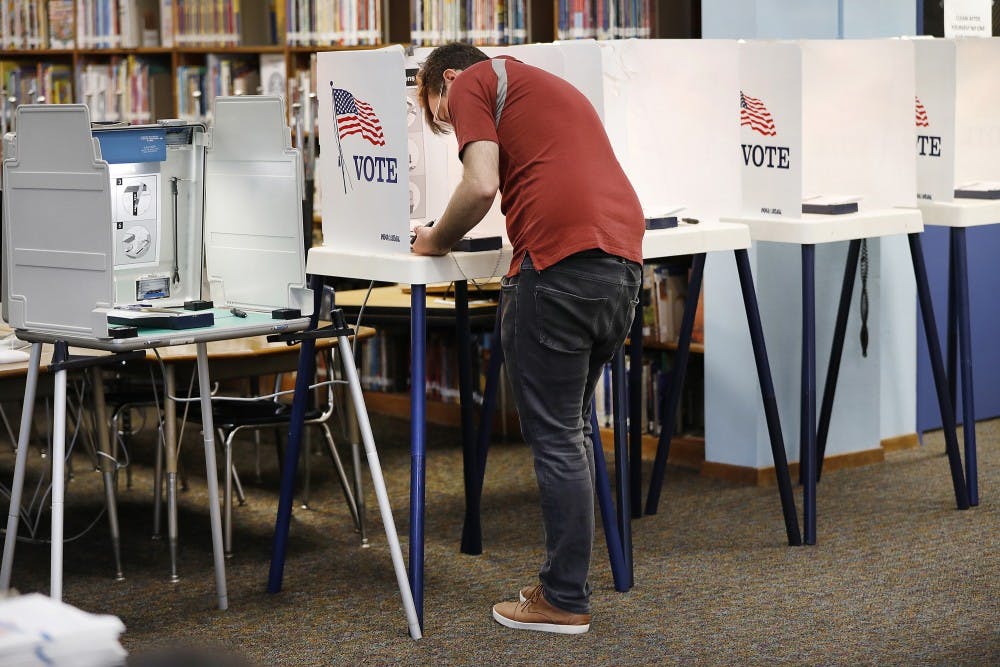The voting system across the majority of the country today is not perfect. Just like in the 2016 presidential election, voters are often forced to choose between the “lesser of two evil,” and that can make voting for one candidate very difficult.
Third-party candidates have always been at a significant disadvantage in elections, so people feel almost forced to pick a candidate from one of the two major political parties.
Americans should not feel forced in choosing their representative and should be able to vote for whoever they like without feeling as though they are “throwing their vote away.”
A much more democratic voting system would be to have ranked-choice voting. Ranked choice voting allows voters to honestly rank all candidates based on their preference and minimizes strategic voting.
Compared to winner-take-all elections, ranked-choice voting is much more democratic and can lead to things like higher voter turnout and more diverse elections.
Ranked-choice voting works by voters choosing candidates in order from most preferred to least preferred. The candidates who receive the least number of votes are eliminated and their votes are deferred to the second preference of their voters.
This process continues until there is a clear majority winner. This system promotes majority rule of the voters and forces candidates to appeal to a broader audience.
Ranked-choice voting allows all candidates to run without fear of “vote splitting,” where a less popular candidate takes votes from other candidates with similar ideologies.
Oftentimes mayors or governors can be elected with less than majority support, but this does not happen with ranked-choice voting because candidates are eliminated in an instant runoff until there is one candidate with over 50% support.
Under this system candidates are forced to appeal to more voters and receive majority support, so this drastically reduces “mud-slinging” and negative campaigning. This encourages candidates to share their positive outlook and policies for the country rather than to simply beat their opponent.
According to a study by the Rutgers-Eagleton Institute of Politics which explored voters’ experiences with ranked-choice voting in seven cities, voters were more satisfied as well as perceived far less criticism and negative campaigning.
Cities with ranked-choice voting have a vast majority supporting the new system. In 2014, independent Californian voters in cities with ranked choice voting were overall much more satisfied than independent voters in cities with the current system.
Critics of ranked-choice voting argue it is too complicated and difficult for voters to understand; however, this is not true according to voters in cities with ranked choice voting. In a post-election report done in Minneapolis in November 2017, 92% of voters described the process as simple.
So far, Maine is the only state to use ranked choice voting for all federal elections and state primaries. Maine cannot yet use it in gubernatorial or state races until it changes its constitution, which governor Janet Mills intends to do.
Mainers are very happy with the change, but state Republicans are pushing back, claiming it violates the idea of “one person, one vote” protected by the equal protection clause of the Fourteenth Amendment.
This is absurd because ranked choice voting is one vote per person. The system helps those who have been historically disadvantaged like third party candidates and candidates from underrepresented backgrounds.
Maine is a perfect example of how powerful politicians will resist this change because it evens the playing field for candidates. This system makes third party winners more viable, and it forces politicians to actually represent their constituents.
Ranked-choice voting is something many other developed countries use, and I think the U.S. voting system can be much more democratic than it is today by using it here.
We need ranked-choice voting not just in Indiana and every state in the U.S., but also here on campus and in local elections like student government, so they can better represent the student body.
Ranked-choice voting is a much more democratic way to vote than our current “first-past-the-post” system, and I think we should implement it everywhere we can. Americans need to feel like their vote has value, and they should feel free to vote for any candidate without feeling institutionally disenfranchised because perhaps their preferred candidate belongs to a different party or has a different ideology.






